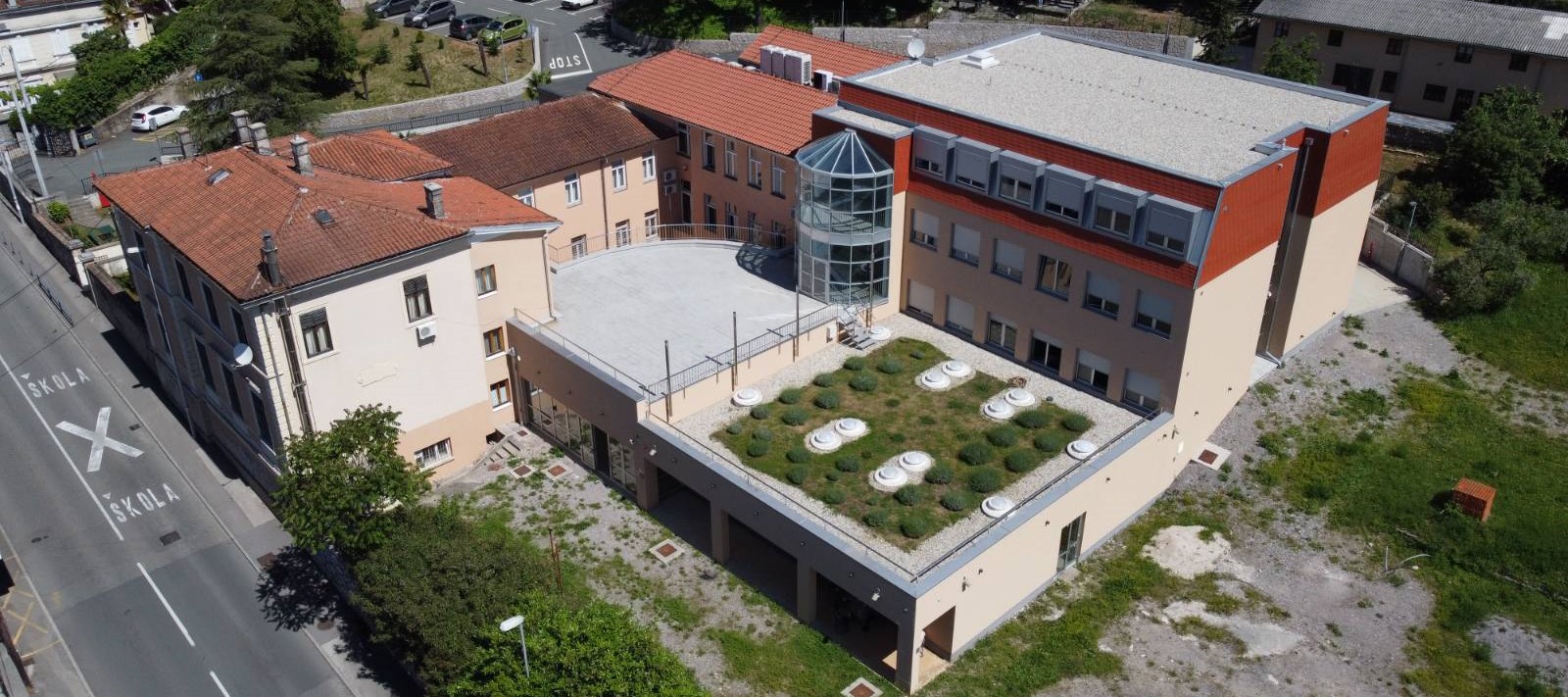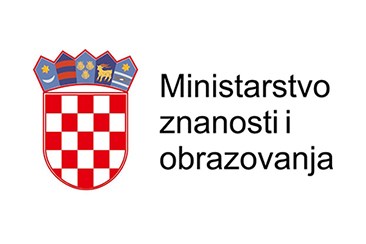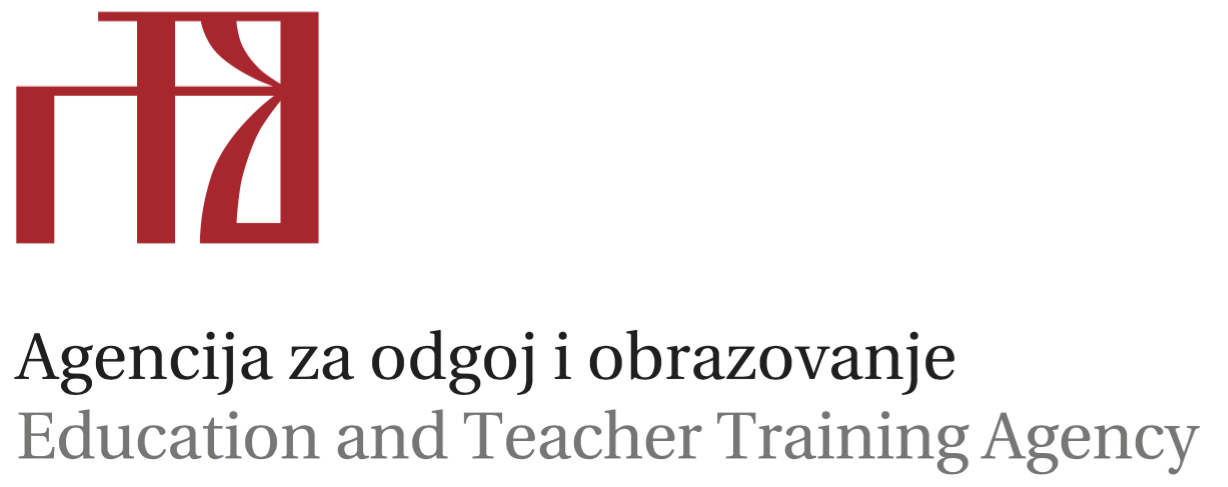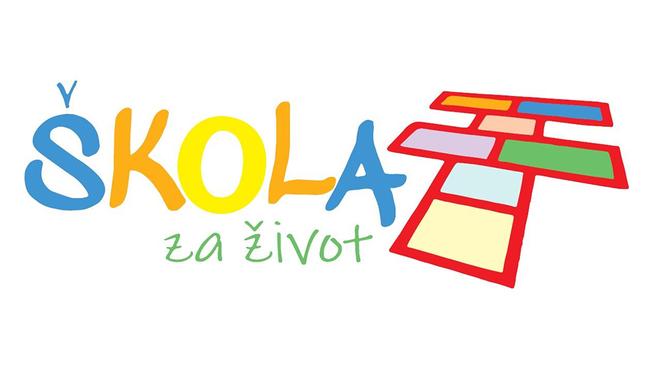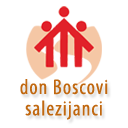PROGRAM COMENIUS, multilateralna školska partnerstva
NASLOV PROJEKTA: Retropolis
RADNI JEZICI: njemački, engleski
Partnerska ustanova 1 Salezijanska klasična gimnazija - Rijeka
Partnerska ustanova 2 Liebfrauenschule Cloppenburg, Njemačka (KOORDINATOR)
Partnerska ustanova 3 Gimnazjum im. ks. St. Konarskiego, Poljska
Partnerska ustanova 4 Katolicke gymnazium Třebič, Češka
Partnerska ustanova 5 Ciszterci Szent Istvan Gimnazium, Mađarska
Partnerska ustanova 6 Colegio Sagrado Corazon de Jesús, Španjolska


Ova publikacija je ostvarena uz financijsku potporu Europske komisije. Ova publikacija odražava isključivo stajalište autora publikacije i Komisija se ne može smatrali odgovornom prilikom uporabe informacija koje se u njoj nalaze.
CILJEVI PROJEKTA Retropolis I STRATEGIJA
Učenici trebaju znati opisati povijest svojih zemalja u osemdesetim i devedesetim što se tiče kulture i politike. Učenici koji sudjeluju trebali bi znati objasniti povezanost povijesti svoje zemlje i povijesti ostalih europskih zemalja. Moći će prezentirati osnovno znanje povijesti osamdesetih i devedesetih bilo na njemačkom (glavnom jeziku projekta) ili na engleskom (drugom projektnom jeziku).
Susret na koncu prve projektne godine trebao bi garantirati da će ti ciljevi doista biti ostvareni budući da će tada rezultati istraživanja prve godine biti prezentirani svim učenicima koji sudjeluju, kao i nastavnicima. O pitanjima će se raspravljati na stranim jezicima. Uz to, oblikovat će se lista riječi na njemačkom i engleskom jeziku, zajedno s ostalom listom riječi potrebnom za razmjene (posjete) i rad na projektu.
Učenici sudjeluju u internacionalnoj razmjeni. Komuniciraju s učenicima drugih škola kroz društvene mreže, email i kroz uzajamne posjete. Ti će kontakti po mogućnosti dovesti do prijateljstava koji će se nastaviti i nakon završetka projekta.
Učenici sudjeluju u oblikovanju scenskog prikaza, zajedno s nastavnicima podjeljuju uloge i rade plan projekta. U drugoj godini projekta istraživanje o periodu 1985.-1995. trebalo bi rezultirati kratkim prikazom (kabare), bit će održana generalna proba i finalna izvedba.
Ziele des Projekts
Die Schüler sollen die Geschichte ihres Landes der 80er und 90er Jahre in kultureller und politischer Hinsicht in Umrissen beschreiben können. Sie sollen den Zusammenhang der landeseigenen Geschichte mit der Geschichte der anderen europäischen Länder erklären können. Die projektbeteiligen Schüler können grundlegende geschichtliche Kenntnisse über die 80er und 90er Jahre alternativ in den Fremdsprachen Deutsch (als Hauptprojektsprache) oder Englisch (als zweite Projektsprache für Schulen, die kein Deutschunterricht haben) vor einem größeren Publikum darstellen. Ein Zwischentreffen am Ende des ersten Projektjahres soll sicherstellen, 1dass diese Ziele auch tatsächlich erreicht werden, da hier die Ergebnisse der geschichtlichen Forschungen des ersten Projektjahres allen projektbeteiligten Schülern und Lehrern vorgestellt werden sollen und auf Nachfragen sachkundig in einer Fremdsprache reagieren sollen. Zusätzlich sollen deutsch- und englischsprachige Wörterlisten entstehen, Sammlungen von Wörtern oder Redewendugen, die für die Besuche und für die Arbeit am Projekt nötig sind. Die Schüler finden Gefallen an einem internationalen Austausch. Sie können kulturelle Unterschiede wahrnehmen und benennen und damit entsprechend umgehen. Sie treten in eine aktive Kommunikation mit Schülern der anderen Projektschulen über bekannte Sozialnetzwerke im Internet, E-Mail-Kontakt oder bekannte Chat-Programme und in Form von gegenseitigen Besuchen in ihren Ländern. Erhofftes Ziel ist, dass die Kontakte der Schüler zu Freundschaften werden, die über die Projektzeit hinausgehen. Die Schüler beschreiben die Komplexität einer Bühnenshow mit inhaltlichem Anspruch und leiten daraus die Notwendigkeit einer Aufgabenverteilung ab. Sie sprechen sich zusammen mit ihren Lehrern über die Verteilung von Aufgabenschwerpunkten ab und erstellen zusammen mit ihren Lehrern einen Arbeitsplan für ihre Projektarbeit. Im zweiten Projektjahr soll die Sachrecherche über die Jahre 1985 bis 1995 in einen unterhaltsamen Kleinkunstbeitrag als Teil der Show umgesetzt werden. Die Schüler entwickeln etwa dreiminütige Showbeiträge („Kleinkunst“), üben sie ein und führen sie einem Publikum vor. Dazu wird ein Generalprobentermin für alle Schulen angesetzt, auf dem die Ergebnisse vorgeführt und bewertet werden.
Project objectives and strategy
The pupils should be able to describe the history of their country in the eighties and nineties with regard to culture and politics. They should be able to explain the connection between the history of their own country and that of the other European countries. The participating pupils can present basic knowledge of the history of the eighties and nineties to a larger audience either in German (the main language of the project) or in English (the second project language for schools which do not have German on their curriculum). A meeting at the end of the first project year should guarantee that these aims will actually be achieved since on this occasion the research results of the first year should be presented to all participating pupils and teachers and questions discussed and explained in the foreign language. In addition German and English vocabulary lists should be drawn up along with a collection of the vocabulary and expressions necessary for exchange visits and work on the project. The pupils take pleasure in the international exchange. They are able to perceive and name cultural differences and deal with them accordingly. They communicate with pupils from the other project schools through social networks, by e-mail or in chat programmes and through reciprocal visits. These contacts will hopefully lead to friendships that will continue after the end of the project. The pupils describe the complexity of an intelligent stage show and recognize the necessity of an allocation of tasks. They decide along with their teachers on the allocation of central tasks and draw up a work plan for the project. In the second year of the project the research done on the years 1985 – 1995 should be turned into a short entertaining cabaret as part of the show. The pupils create and develop three-minute performances (cabaret), rehearse them and present them to an audience. At the same time a date for a general rehearsal will be set during which the results will be presented and assessed.
OPIS PROJEKTA Retropolis
Partnerske škole imaju kao cilj prikazati važan dio europske povijesti u obliku scenskog prikaza pod nazivom „Retropolis“. Cilj je kroz takav zabavni oblik prezentacije različite zemlje bi se uključile u dijalog o povijesti, o zajedničkoj povijesti. Prema mišljenju škola sudionica osamdesete i devedesete godine dvadesetog stoljeća predstavljaju središnje povijesno razdoblje o kojem bi Europljani trebali razmišljati tijekom aktualne krize u Europi.
Scenski prikaz trebao bi potaknuti različite kategorije ljudi na diskusiju i razmatranje o onom što je bitno za Europu. Tema prikaza treba se odnositi na vremenski period od 1985. do 1995.; te godine treba predstaviti na mozaičan način u ukupnom trajanju od pola sata. Nije bitna politika tih godina već svakodnevna iskustva i događaji u partnerskim zemljama.
Povijesna dimenzija projekta predstavlja glavni aspekt rada u prvoj godini rada na projektu. Istraživanje kulture i politike zemalja, ispitivanje suvremenih svjedoka i prikupljanje predmeta za izložbu bit će fokus rada.
Tijekom druge godine projekta kreativni aspekt projekta (oblikovanje scenskog prikaza) bit će njegov središnji aspekt.
Za većinu učenika koji sudjeluju njemački je strani jezik. Određeni broj učenika i dvije škole koristit će engleski jezik. Zbog toga će prikaz biti za sve na stranom jeziku. Želimo osnažiti interkulturalnu i povijesnu kompetenciju i europsku svijest učenika.
Web stranica: https://sites.google.com/site/skgretropolis/home
Projektbeschreibung
Von den Partner-Schulen ist geplant, ein Stück wichtiger europäischer Geschichte in Form einer Revue unter dem Titel „Retropolis“ auf die Bühne zu bringen, um einerseits zu unterhalten, andererseits mit Hilfe der Unterhaltung Menschen der verschiedenen Länder ins Gespräch über die jüngere gemeinsame oder gemeinsam gewordene Vergangenheit zu bringen. Die 80er und 90er Jahre des 20. Jahrhunderts erscheinen den Schulen als zentrales einigendes Ereignis der jüngeren Vergangenheit, an die in den augenblicklichen Zeiten der Krise in Europa gedacht werden soll. Die Show soll emotionalisieren, verschiedene Personenkreise zum Gespräch und zum Nachdenken anregen, zur Besinnung auf das, was für Europa wesentlich ist, bringen. Die Show soll die Jahre 1985 bis 1995 zum Thema haben, diese 11 Jahre sollen in etwa dreißig dreiminütigen Beiträgen mosaikartig wiedererstehen. Dabei geht es nicht nur um die große Politik dieser Jahre, sondern um alltagsgeschichtliche Erfahrungen und Begebenheiten in den Ländern der Partnerschulen. Im ersten Projektjahr soll an der historischen Dimension des Projekts gearbeitet werden. Die Erforschung der Kultur- und Politikgeschichte der Länder, die Befragung von Zeitzeugen und das Sammeln von Gegenständen der Zeit stehen im Zentrum dieser Arbeiten. Im zweiten Projektjahr wird der kreative Teil des Projekts zum Schwerpunkt der Projektarbeit gemacht. Für die meisten Schüler ist die Arbeitssprache Deutsch eine Fremdsprache. Manche Schüler und zwei Schulen möchten jedoch das Projekt auf Englisch durchführen. So wird für alle Schüler die Show eine Aufführung in einer Fremdsprache sein. Wir erhoffen uns eine Stärkung der interkulturellen und der historischen Kompetenz bei den Schülern und eine Stärkung des Europabewusstseins.
Webseite: https://sites.google.com/site/skgretropolis/home
Description
The partner schools plan to present an important part of European history on the stage as a revue with the title “Retropolis”, on the one hand to entertain, on the other hand through this entertainment to bring people from the different countries into conversation with one another about the past, about their mutual past. In the opinion of the schools the eighties and nineties of the 20th century represent the central event of the past which people should think about during the current crisis in Europe. The show should emotionalize, should encourage all kinds of people to discuss and reflect on what is essential for Europe. The theme of the show should be the years 1985-1995; these eleven years should be represented in mosaic form in around thirty three-minute acts. Not the politics of these years are important, but everyday experiences and occurrences in the countries of the partner schools. The historical dimension of the project is the main aspect of the work in the first project year. The research of the culture and politics of the countries, the questioning of contemporary witnesses, the collection of exhibition objects will be the focus of this work. In the second year of the project the creative part of the project will be the central aspect.For most pupils taking part German is a foreign language. A number of pupils and two schools would like to carry out the project in English. That’s why the show will be a performance in a foreign language for all pupils. We hope to strengthen the intercultural and historical competence and the European consciousness of our pupils.
Website: https://sites.google.com/site/skgretropolis/home
| « Veljača 2024 » | ||||||
| Po | Ut | Sr | Če | Pe | Su | Ne |
| 29 | 30 | 31 | 1 | 2 | 3 | 4 |
| 5 | 6 | 7 | 8 | 9 | 10 | 11 |
| 12 | 13 | 14 | 15 | 16 | 17 | 18 |
| 19 | 20 | 21 | 22 | 23 | 24 | 25 |
| 26 | 27 | 28 | 29 | 1 | 2 | 3 |
| 4 | 5 | 6 | 7 | 8 | 9 | 10 |
